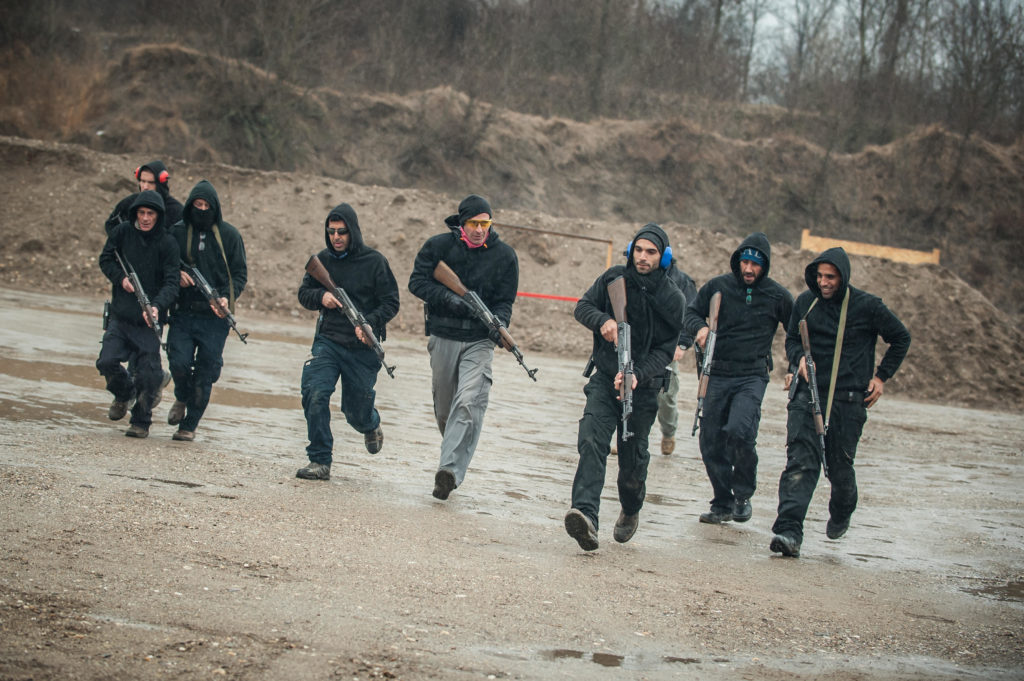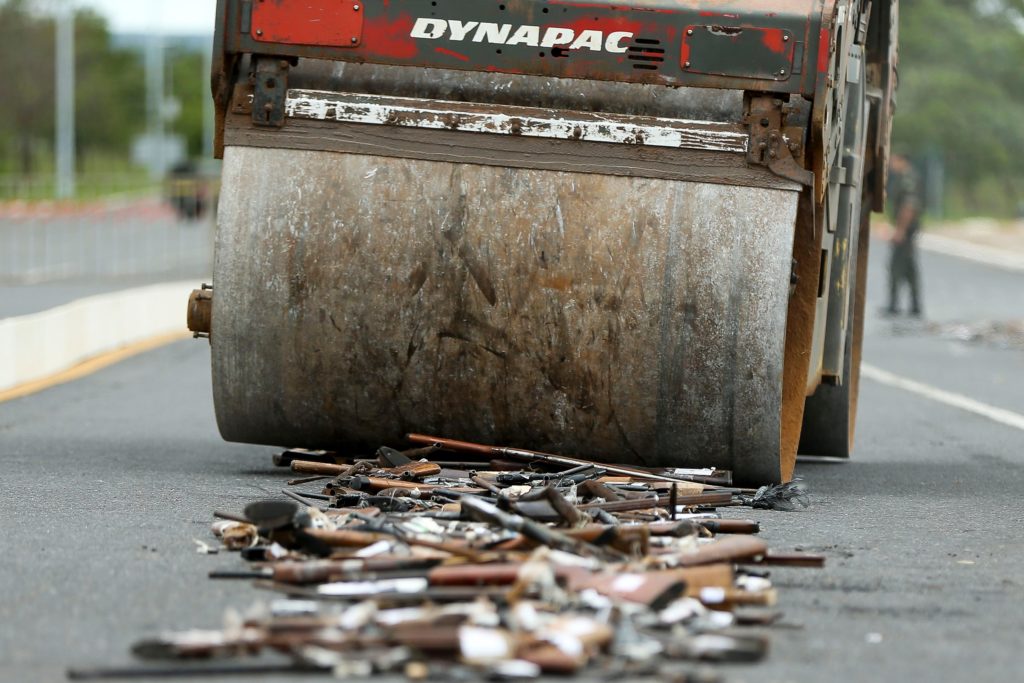Column by Scott Salmon
RIO DE JANEIRO, BRAZIL – Brazil is a country plagued by endemic gun violence; shootings and firearm deaths are a daily occurrence in almost all its cities. So it was astonishing this month to witness a Presidential decree that more – and more lethal – arms and ammunition be made available to its citizenry.

In fact, after an initial response that his arms decree was unconstitutional, President Bolsonaro issued a revised version this week that went even further than the original.
The latest iteration actually increases the number of professional categories that would have access to gun purchase without having to prove “effective necessity” for acquisition.
The President’s decree represents a dramatic deregulation of firearms laws – and the most significant shift in policy for decades – with the latest version allowing an even greater number of Brazilians to own firearms (from 5 to 30 per person depending on their category) without formal clearance by federal authorities.
The decree will also increase the caliber or firepower of weapons on the market. If it goes into effect, weapons four times more powerful than those currently permitted will be available for Brazilians to purchase.
Predictably, perhaps, stocks of the gun maker Taurus soared this week on the news that over two thousand customers had joined a waiting list for their T4 semi-automatic rifle.
The logic behind the decree is counterintuitive: Proponents suggest a proliferation of guns on the streets will create a more secure environment as criminals will no longer enjoy the certainty that potential victims, or vigilante bystanders, will not be armed.
Opponents argue that the result will be precisely the reverse: more guns and greater firepower will only increase the likelihood of gun deaths.
At the same time, a higher number of guns in circulation raises the probability that they will fall into the hands of criminals, only exacerbating the danger faced by law enforcement personnel.
Despite the revision, constitutional objections to the decree remain, and it is unclear what will eventually become law. What is clear is that opposition to the decree and the influx of guns it would generate seems to be growing.
This week, fourteen governors – from a range of political parties – signed an open letter calling for an immediate repeal.
The decree is simultaneously under challenge through multiple actions in both the Federal Court and the Federal Supreme Court.
Poll results released this week, by Levantamento da Paraná Pesquisas, indicate that 60.9 percent of Brazilians would not want a firearm in their home (only 36.7 percent were in favor).
The strongest opposition to gun ownership came from women: 70.6 percent were opposed compared to 50.2 percent opposition among men.

The gender split is not surprising. Evidence from the USA suggests that female victims of gun violence are most likely to have been shot by their spouse, ex-spouse, or intimate partner.
The likelihood of gun injury or death rises exponentially for homes where a gun is present.
Guns are also a devastatingly effective means of ending one’s own life. A study by the U.S. Center for Disease Control revealed that suicides comprise two-thirds of all gun deaths.
The very lethality of guns means they have become a key target for suicide prevention; 90 percent of people attempting suicide by firearm don’t try again.
There is now conclusive proof that an increase in guns translates into an increase in death.
A study recently published in the American Journal of Public Health, for example, found a direct connection between increases in a state’s gun ownership rate and increases in firearms fatalities.
Conversely, research suggests gun violence is reduced precisely by reducing access to firearms – or restricting ownership through stronger background checks, requiring permits, and banning assault-style rifles.
When states have liberalized access to guns – by eliminating background checks for private sales, for example – homicide rates have soared.
Whatever one’s position on private gun ownership, it is undeniable that an increase in the availability of high caliber guns will lead to a rise in deaths and gun violence.
The President’s gun decree will only make Brazil a more lethal place.

